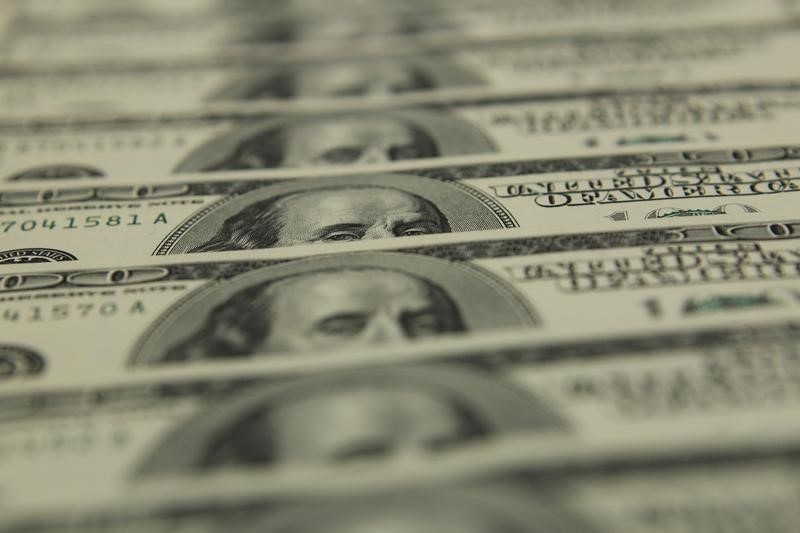Investing.com - The dollar rebounded in Asia on Wednesday as markets reacted to an apparent failed missile test by North Korea noted views from a Fed policymakers on the interest rate outlook and mulled stronger than expected Japan trade figures.
The U.S. dollar index, which measures the greenback’s strength against a trade-weighted basket of six major currencies, rose 0.11% to 99.66. USD/JPY fell 0.03% to 111.68 after North Korea launched a missile test that reportedly failed.
Earlier, Japan reported exports in February rose 11.3%, beating a 10.6% gain expected, while imports rose 1.2%, double the 0.6% rise seen for the third straight month of increases. At the same time, minutes from the Bank of Japan's January policy meeting signaled sentiment on the nine-member board that companies will modestly raise prices and wages to reflect better confidence in the economy.
Most board members also rejected any move for the BoJ to raise its 10-year government bond yield target. The BoJ raised its growth projections in January and maintained its pledge to guide short-term interest rates at minus 0.1 percent and the 10-year government bond yield around zero percent.
Elsewhere, Eric Rosengren, president of the Boston Fed and Federal Reserve Bank of Cleveland President Loretta Mester in the U.S. noted the case for more rate hikes this year remains strong, arguing economic trends are on the upswing and risks are growing.
AUD/USD traded at 0.7662, down 0.38%, while GBP/USD was at 1.2475, down 0.03%.
Overnight, the dollar slumped against a basket of major currencies on Tuesday, as the Federal Reserve’s dovish comments concerning rate hikes continued to weigh on sentiment while sterling and the euro surged.
The dollar dived to a six-week low, as better than expected economic data failed to lift sentiment while a surge in sterling and euro heaped further pressure on the greenback. The Commerce Department said on Tuesday, the current account deficit, which measures the difference in value between exported goods, services and interest payments, fell 3.1% to $112.4 billion.
Economists had expected the current account deficit to shrink to $128.2 billion.
Meanwhile, FOMC member William Dudley spoke at an event in New York City, but did not discuss monetary policy.
Elsewhere, sterling and the euro surged against the greenback during the session, after better than expected UK inflation data propped up the pound while the euro gained on the back of growing optimism that centrist candidate Emmanuel Macron would see off the challenge from anti-EU candidate Marine Le Pen in the French presidential race.
